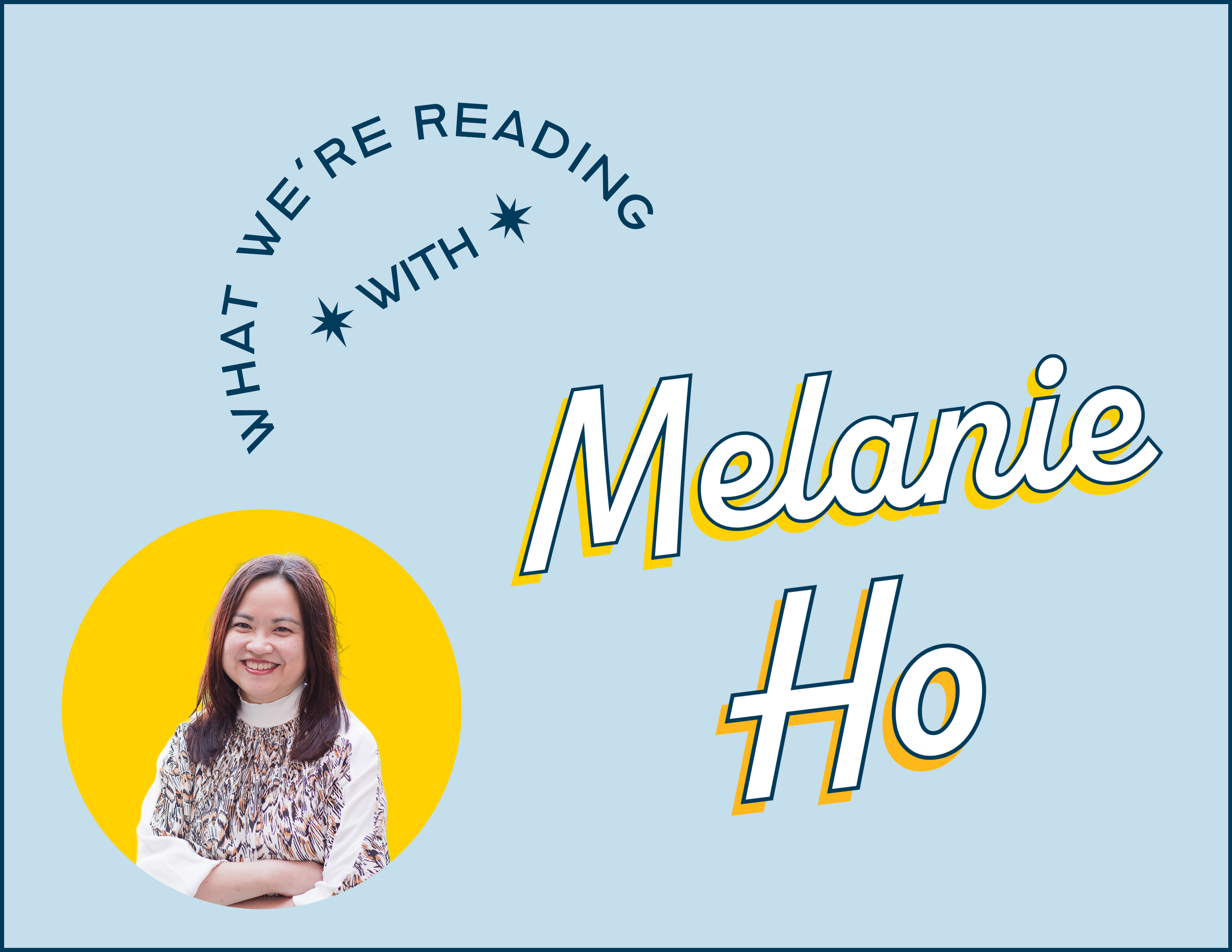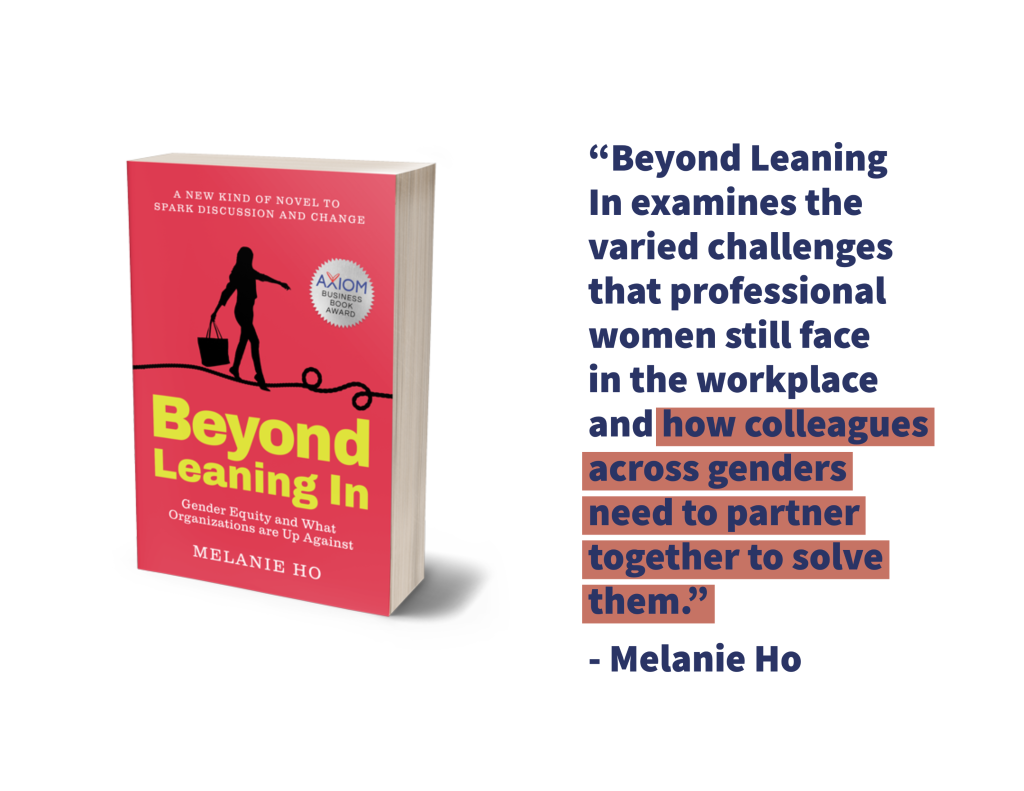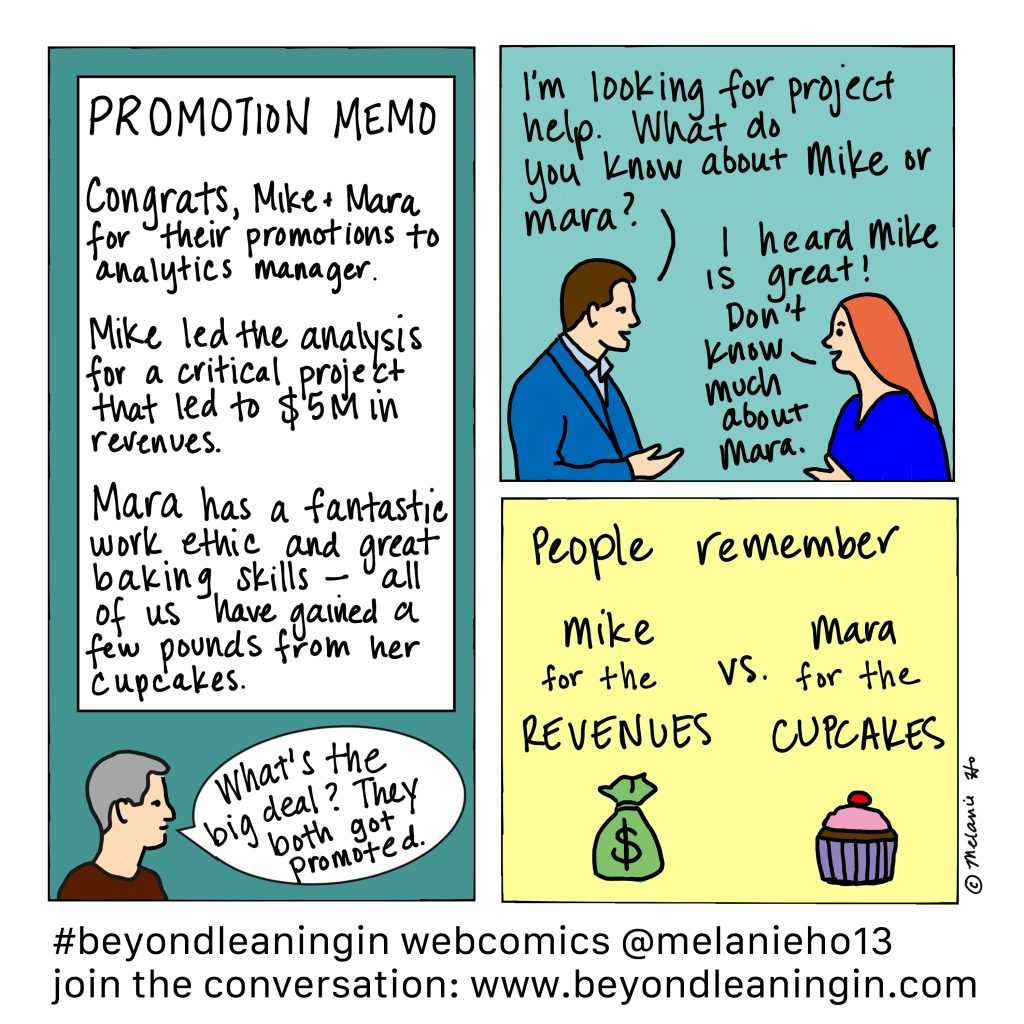What We’re Reading with Melanie Ho

PhD alum Melanie Ho’s book, Beyond Leaning In: Gender Equity and What Organizations are Up Against (Strategic Imagination, 2021) received a 2022 Axiom Award, an award which recognizes the world’s best business books. Melanie will be here on Wednesday, March 1 to talk about her journey through Alternative Academic (AltAC) career paths which culminated in writing this novelized diversity, equity and inclusion (DEI) book. Enjoy a sneak peak of what’s to come at this event with our recent interview with Melanie.
Can you tell us a little bit about your book?
Beyond Leaning In examines the varied challenges that professional women still face in the workplace and how colleagues across genders need to partner together to solve them. It’s a different kind of book: while it’s based on extensive research and you’ll find it in the women’s studies, business, or social science sections, Beyond Leaning In is told as a novel. Each chapter alternates between the perspective of a different character at a fictional company, allowing us to see the interconnected and systemic reasons for why gender gaps still exist in the workplace.
Why focus on gender equity in the workplace?
After I received my PhD in English, I spent twelve years in business climbing the corporate ladder, eventually becoming a senior vice president at an education technology and consulting firm, where I managed over a hundred people. On my journey to the corner office, I saw and experienced the extent to which professional women in the workplace still face barriers. Women are often told that we need to “lean in” and be more confident at work. While that’s good advice, it also ignores the biases that make it harder for women to lean in, the unequal treatment that leads women’s confidence to get whittled away, the penalties women face when we do lean in, and more. In hundreds of conversations with women across industries (business, education, health care, government, non-profit, etc.), I found these challenges are universal, often become worse as women advance in their careers, and are too often only discussed “behind closed doors.”

What made you decide to do this book? How did it come about?
When I entered the business world as an English PhD, I was excited when I learned from friends who had gotten MBAs or worked in non-profit management that there was a small-but-mighty tradition of leadership books written as fiction. The most-famous ones are Patrick Lencioni’s The Five Dysfunctions of a Team and Eliyahu M. Goldratt and Jeff Cox’s The Goal. After reading all the leadership books that I could find that were written as novels, I was interested in pushing the genre even further, as well as focusing on a topic (women in the workplace) that hadn’t yet been explored by other authors in the genre. Psychological research shows that fiction can help build empathy, but only fiction that gives us access to the interiority of characters, which the existing canon of leadership-books-as-novels hadn’t yet done to the extent that I felt was possible. That’s why I wrote the book to include the perspectives of multiple characters across demographics and different stages in their careers, from interns to the CEO.
You received a PhD in English and a minor in English from UCLA. How have these degrees shaped what you do today?
My Ph.D. dissertation about middlebrow vs. modernist literature in the early-20th century was titled Useful Fiction, and one of the things that I examined was how the novel emerged as a type of self-help and education. That definitely informed my writing of Beyond Leaning In as a business and self-help book written as a novel. During the pandemic, I started my own consulting and training firm, Strategic Imagination, which focuses on the use of the imaginative arts to help organizations with transformational change. For example, I use a discipline called “design fiction” that draws inspiration from science fiction and world-building to help organizations create bolder strategic plans. I also draw comics about feminism and diversity, equity, and inclusion in the workplace (Instagram: @melanieho13) and use these comics to facilitate interactive discussions about how to create more equitable professional environments.
Do you have a favorite memory from your time at UCLA?
It’s really impossible to pick just one! To be honest, my favorite memories are the day-to-day ones with people who became lifelong friends: staying up late in the Delta Terrace study lounge and chatting about the meaning of life, long coffee breaks on the red benches at Rolfe Hall, standing on Bruin Walk and handing out fliers or registering people to vote, wandering around campus at night when it was beautifully lit up… all the thousands of small moments.
Do you have any other projects on the horizon that you’d like to share or talk a bit about?
I do a lot of different types of consulting right now, but my favorite thing is using the arts in workshops with leadership teams that need a more creative way to think about change – something I’ve done with leaders from organizations ranging from Fortune 500 companies to leading universities. Based on the research that went into my book, I’m also working on a few screenplays that are similarly designed to get people to think differently about gender and racial equity.
Do you have any advice for current English students soon to go out into the workforce?
The best opportunities I’ve had have been the ones that I couldn’t have imagined — jobs I didn’t even know existed! When I talk to recent grads, I notice that many feel a lot of pressure to have everything all figured and mapped out. It’s great to have goals and aspirations, but I always encourage students and recent grads to stay open and curious. Keep learning and growing, and seek opportunities that will simultaneously use your talents and help you develop new skills.
What are you currently reading? Any book recommendations?
The best book I’ve read recently is Stephanie Foo’s memoir, What My Bones Know. It’s beautifully written, emotionally wrenching, and rigorously researched. I hope Foo’s book and articulation of her healing journey leads to more open dialogue in our society about abuse, mental health, trauma, and intergenerational trauma, especially in spaces (such as the AAPI community as in Foo’s book) where there’s even greater stigma around discussing these issues.
